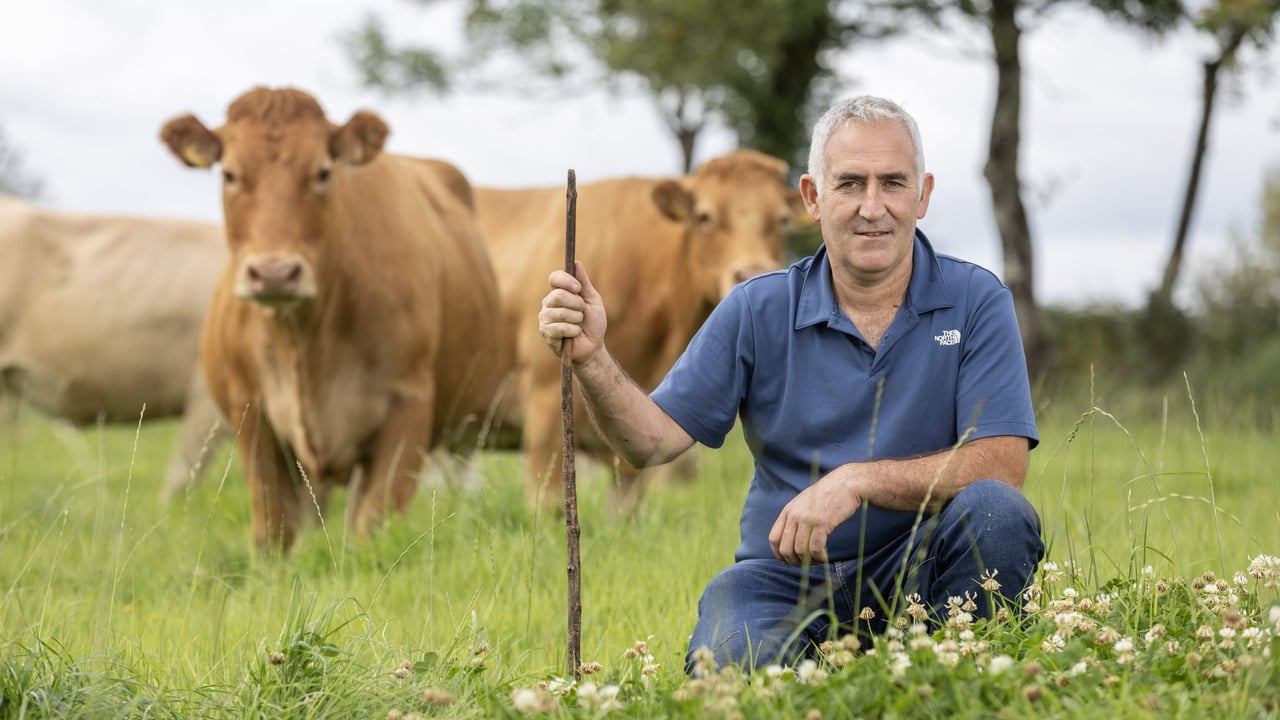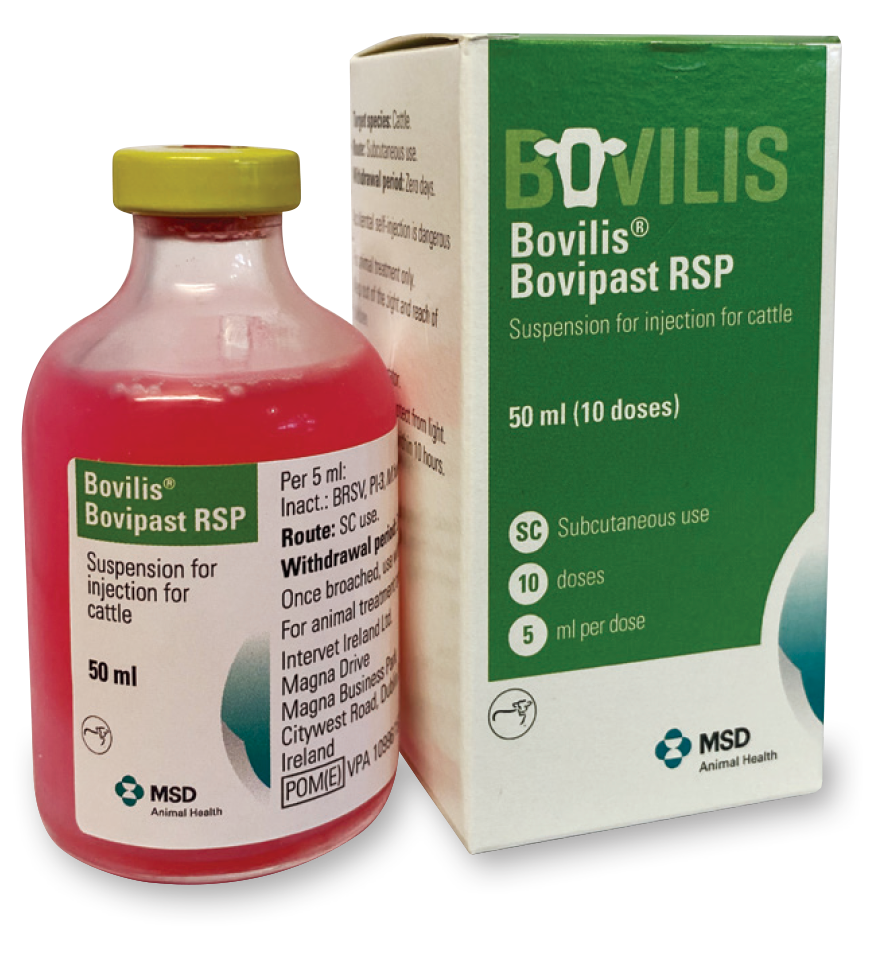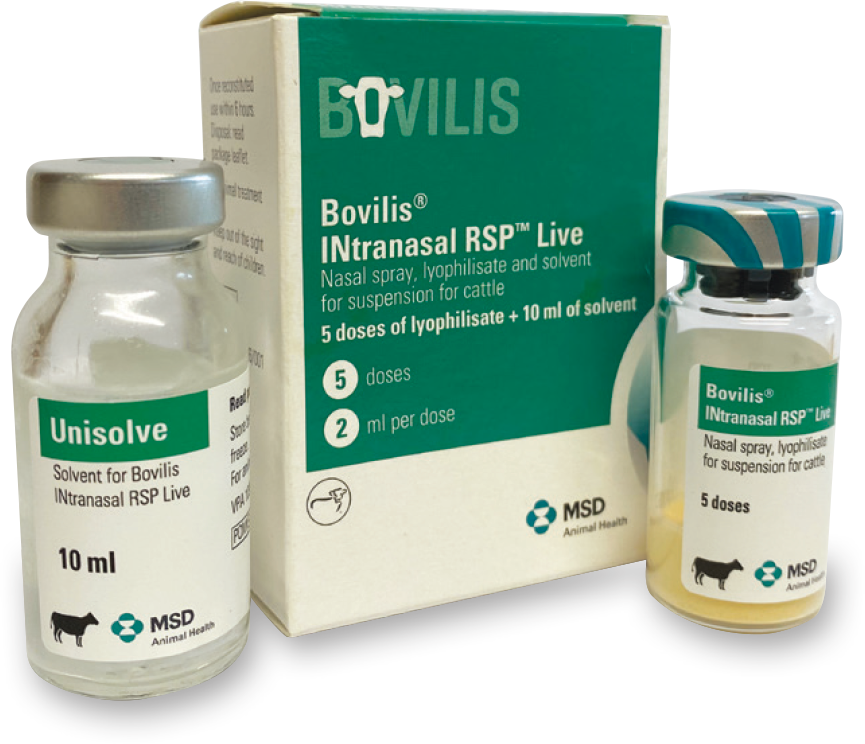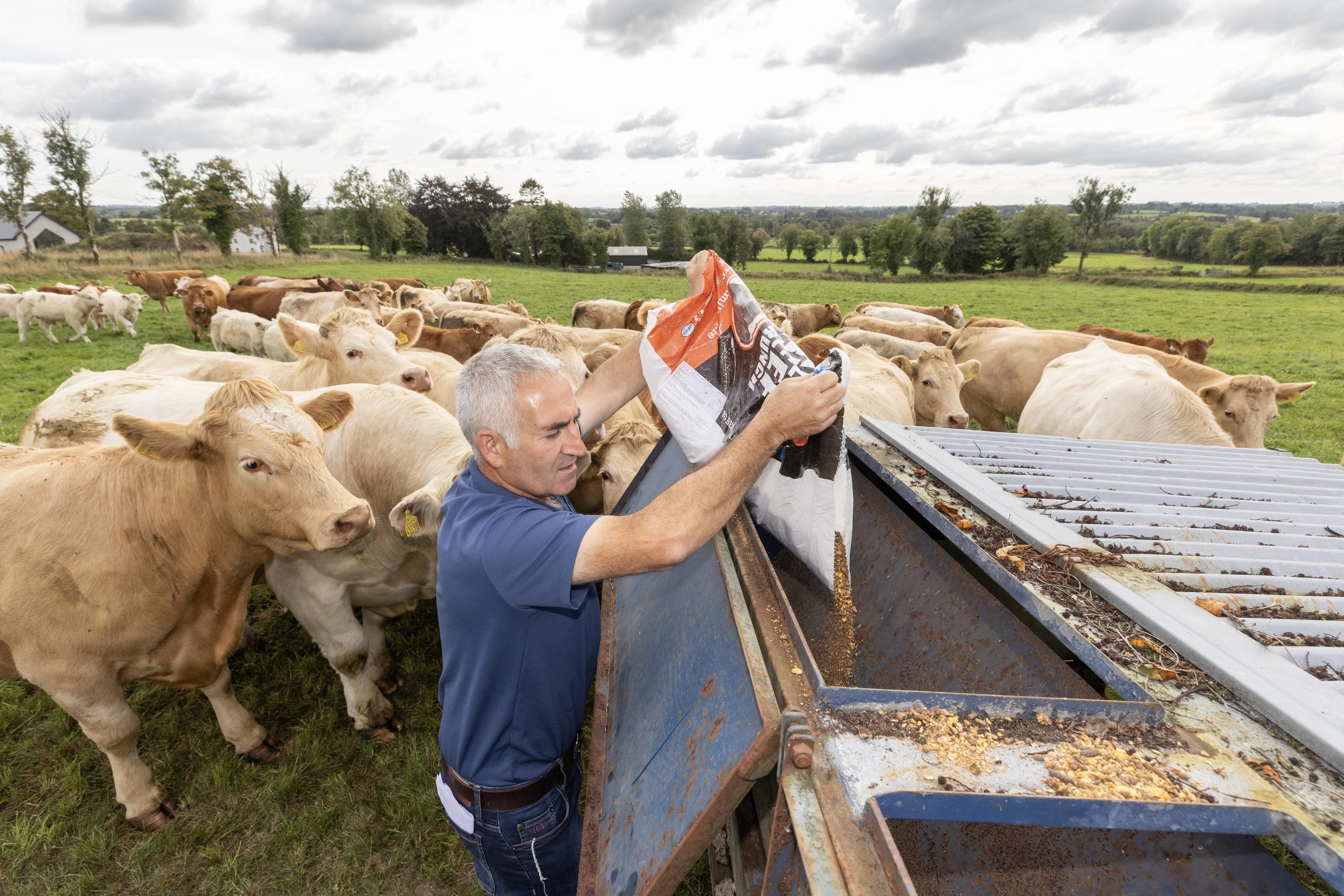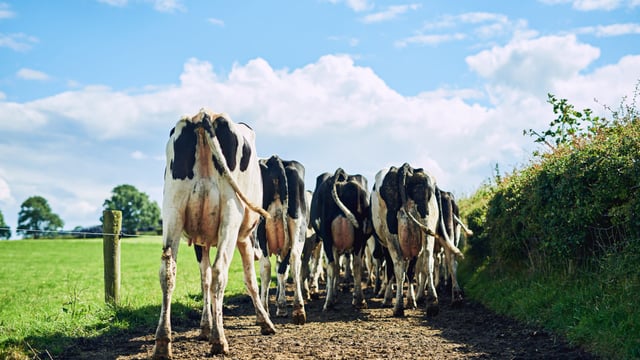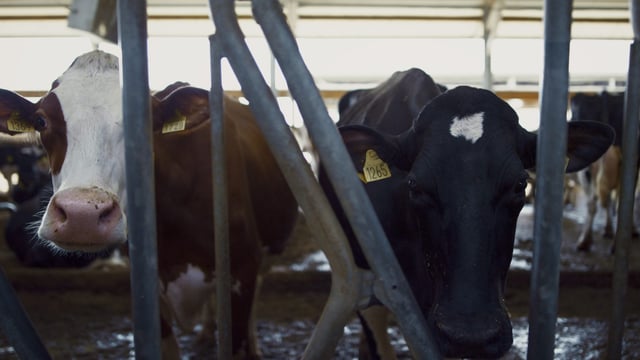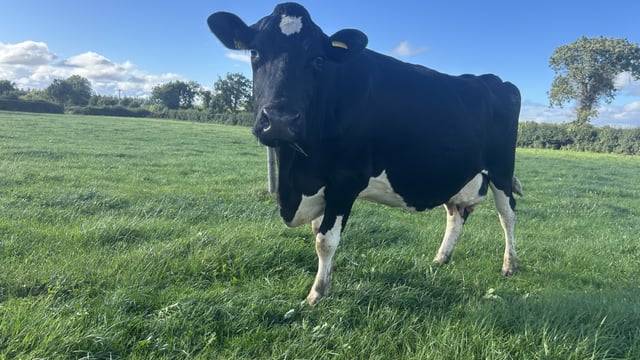Sponsored Article
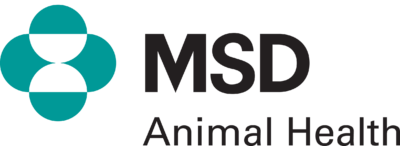
Sponsored Article
Vaccination takes the stress out of weaning for Co. Longford farmer
Sponsored Article

Autumn can be a high-risk period for calf pneumonia on Irish farms, with stressors such as weaning and housing reducing the ability of the immune system to fight disease.
One farmer familiar with this challenge is Albert Murphy, who runs 40 suckler cows on 90ac in Soran, near the village of Ballinalee, Co. Longford.
He said: “In the past when we were weaning calves at the backend of the year, about a fortnight into housing them we had to deal with a bit of coughing to begin with, which developed into pneumonia.
“I had one good 350kg weanling that got pneumonia, couldn’t get over it and died, unfortunately.
“That was a heartbreak and heartache,” he said.
Albert’s decision to start vaccinating came after facing multiple cases of pneumonia around weaning and housing three years ago.
“There had to be an alternative to relying on antibiotics and running up additional treatment costs," he said.
"So I went to Harry Ferguson, my local vet at Longford Animal Health Centre, and he advised me to put a vaccination programme in place.
"He recommended Bovilis Bovipast RSP. I took his advice on board, began using it, and saw immediate benefits."
Bovine respiratory disease (BRD) is the most frequently diagnosed cause of death in cattle over one month-of-age in Ireland.
Pneumonia is the main clinical presentation of the BRD complex. Animals with a history of BRD have reduced feed efficiency, lower daily gains, and can take up to two months longer to finish than their healthy cohorts.
Bovilis Bovipast RSP protects against viral infections caused by RSV and PI3 and provides the broadest protection against infection caused by Mannheimia haemolytica.
Mannheimia haemolytica is commonly found to be the principal bacterial agent implicated in calf pneumonia, accounting for 16.5% of all BRD cases diagnosed on postmortem exams in 2023.
The primary course of Bovilis Bovipast RSP consists of two 5ml doses, given four weeks apart, administered subcutaneously into the neck.
The primary course must be completed at least two weeks before stressful periods such as weaning or housing.
Planning ahead works well for Albert, who said: “I like to have the primary course finished before weaning.
"Once the two doses are into them in good time, they go into the shed well covered.”
For his autumn-born calves, Albert also uses Bovilis INtranasal RSP Live.
“It works quickly,” he said.
“You can give it to calves on the day they’re born and after a week they have protection in place.”
Bovilis INtranasal RSP Live is an intranasal vaccine that protects calves against two viral causes of pneumonia, RSV and PI3.
A single 2ml dose can be given intranasally from the day of birth, with onset of immunity seven days later and protection lasts for 12 weeks.
Alongside vaccination, Albert has additional measures in place to reduce stress at weaning.
On the farm, this includes creep feeding 1kg meal per calf per day for four weeks pre-weaning and increasing to 2kg per day for two weeks post-weaning, weaning calves in small groups, and removing cows while leaving calves in familiar surroundings.
At housing, stress is minimised by: weaning calves two to four weeks earlier; having a strategic dosing plan in place; keeping sheds clean, dry, and well-ventilated; and avoiding overcrowding.
Good lighting allows for close monitoring of stock and early identification of any sick animals.
Like many farmers across the country, Albert has applied for the Beef Welfare Scheme 2025, which aims to enhance animal health, husbandry, and economic efficiency on suckler farms by supporting key animal welfare actions.
Recommending the scheme, he said: “The measures are very worthwhile and well incentivised. Every suckler farmer should be taking part in it.”
Under the scheme, meal feeding pre- and post-weaning is mandatory, while vaccination against pneumonia and/or clostridial diseases and faecal or forage testing are optional actions.
A payment of €15 per calf is available for vaccination, up to a maximum of 45 calves (€675 in total).
MSD Animal Health offers a range of vaccines suitable for use as part of the scheme.
For pneumonia, options include Bovilis Bovipast RSP, Bovilis INtranasal RSP Live, and Bovilis IBR Marker Live. For clostridial diseases, eligible vaccines include Tribovax 10 and Tribovax T.
Albert said: “Since introducing vaccination, the animals are healthier and thriving better. It’s taken a lot of stress off me, and in the long run it works out a lot cheaper.
"So, to anyone considering a vaccination programme, go to your vet, work out a plan and they’ll set you on the right road. The key is to start early, before the high-risk period. After all, prevention really is better than cure.”
Speak to your veterinary practitioner to determine the most appropriate management and vaccination programme for your weanlings this autumn.
Sponsored Article


